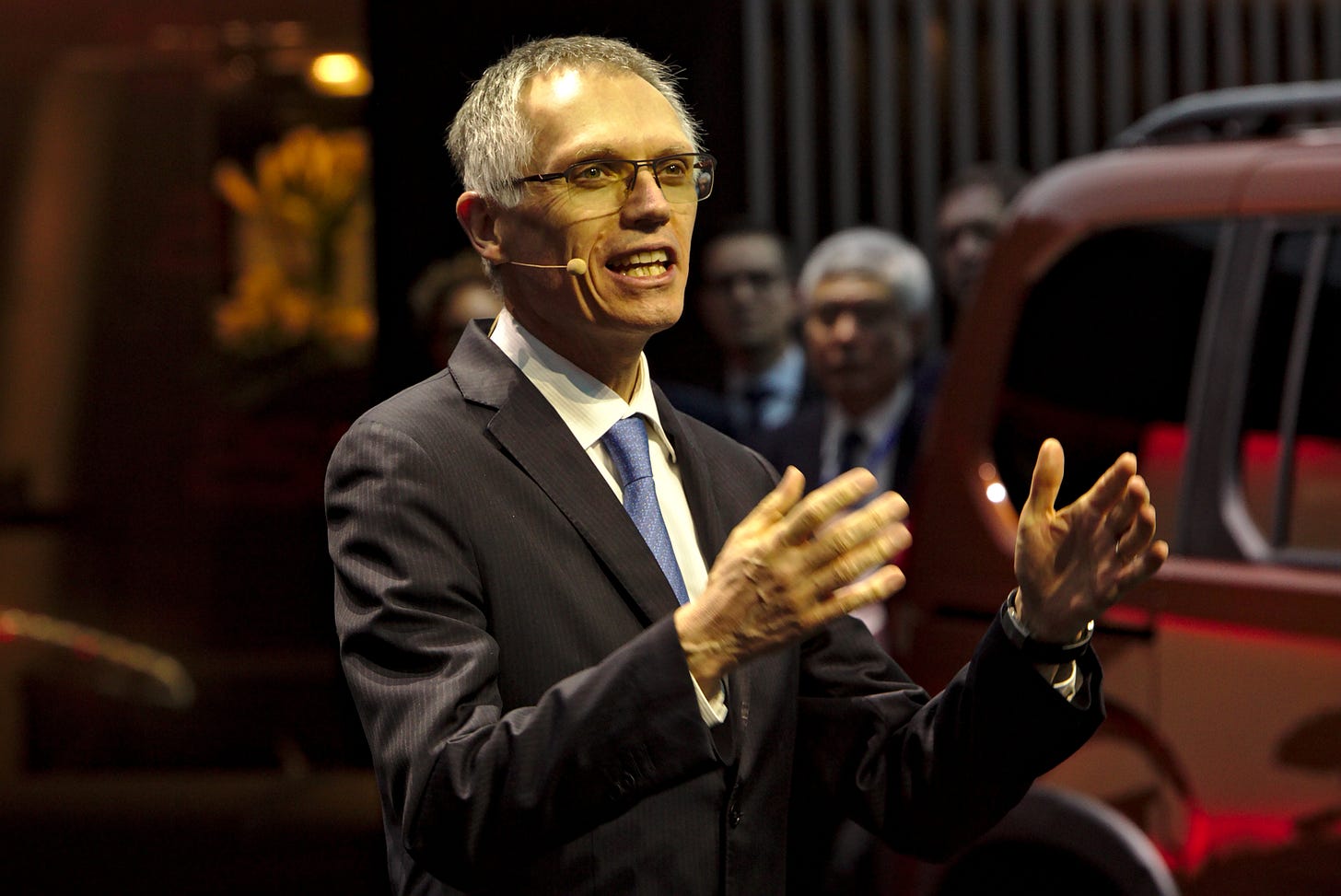Stellantis CEO Carlos Tavares steps down
Born in 1958 in Lisbon, Tavares is one of the leading figures of the automotive industry, managing the world’s fourth-largest automaker, with a budget almost as big as Portugal's.

What?
Carlos Tavares, the architect of Stellantis and one of the automotive industry’s most prominent figures, has resigned as CEO of the multinational automaker, effective December 1.
His departure follows a series of strategic disagreements with the board and mounting challenges tied to the company's financial performance and management practices.
Tavares, 66, played a pivotal role in the 2021 merger that formed Stellantis, combining France’s PSA Group (Peugeot, Citroën, and Opel) with Fiat Chrysler Automobiles (FCA).
The resulting conglomerate became the world’s fourth-largest automaker, with 14 global brands including Jeep, Dodge, and Peugeot.
However, recent years have seen rising tensions over his leadership style and focus on profitability at the expense of other priorities.
Profitability vs. Sustainability
Tavares was known for his “Darwinian” vision of the automotive industry, emphasizing the survival of the fittest amid the transition to electric vehicles.
Under his leadership, Stellantis achieved record profits in 2023, but at a cost. Critics argued that relentless price hikes alienated customers and led to a sharp decline in market share.
By late 2023, U.S. sales were down 17% year-over-year, with Stellantis vehicles averaging $55,000—one of the highest price tags in the industry.
The company also faced a surplus of unsold vehicles and declining cash flow, forcing layoffs at plants in Michigan and Ohio. These decisions fueled discontent among dealers, unions, and employees, culminating in calls for Tavares’ resignation.
Boardroom Clash
Stellantis’ senior independent director, Henri de Castries, confirmed that Tavares and the board had “different views” on the company’s future.
The disagreements reportedly centered on Tavares’ management style, described as excessively centralized and dismissive of operational feedback.
His appointment of inexperienced executives and dismissal of senior U.S. managers further strained relationships within Stellantis’ most profitable markets.
The automaker’s president, John Elkann, heir to the Agnelli family that holds the largest stake in Stellantis, ultimately decided to part ways with Tavares.
Elkann will oversee an interim leadership team while a search committee works to appoint a new CEO by mid-2025.
Union and Dealer Reactions
Tavares’ resignation was met with approval from stakeholders who had been critical of his leadership. The United Auto Workers (UAW) union welcomed the move, citing mismanagement and mistreatment of workers.
Dealer representatives also blamed Tavares for prioritizing short-term profits over long-term stability, resulting in plant closures and eroding market share.
Uncertain Future
While Tavares leaves behind a legacy of bold strategic moves, his exit creates uncertainty for Stellantis at a critical juncture.
The company must navigate the challenges of the electric vehicle revolution, declining sales, and labor tensions, all while seeking a leader capable of uniting its diverse global operations.
Shares in Stellantis dropped more than 8% following the announcement, signaling investor concerns about the transition.
Analysts remain cautiously optimistic that the leadership change could help stabilize the company and chart a path forward in an evolving automotive landscape.
In 2022, Stellantis Mangualde, Viseu district, celebrated its 60th anniversary with its second-best production year, manufacturing 77,422 vehicles, a 14% increase from 2021.
Representing 24% of Portugal’s vehicle production, the factory produces top-selling light commercial vehicles for key markets like France and Spain, significantly boosting Portugal's economy and regional employment.
Carlos Tavares: Visionary Automotive Executive
Carlos Tavares, born on August 14, 1958, in Lisbon, Portugal, is a prominent figure in the global automotive industry, renowned for his strategic acumen and transformative leadership.
A graduate of École Centrale Paris, Tavares began his career in 1981 at Renault, where he held various leadership roles, including overseeing product planning and engineering.
In 2011, Tavares joined Nissan as Chief Operating Officer, helping to steer the company through significant global expansion.
Two years later, he returned to France to become CEO of PSA Group, then struggling financially. His cost-cutting initiatives and focus on efficiency revitalized brands like Peugeot, Citroën, and Opel, setting the stage for record profits.
Tavares’ crowning achievement came in 2021 with the creation of Stellantis, a $50 billion merger of PSA and Fiat Chrysler Automobiles (FCA).
As CEO, he presided over the world's fourth-largest automaker, overseeing 14 brands including Jeep, Fiat, and Peugeot. His tenure was marked by a relentless pursuit of profitability and an ambitious push toward electrification.
The press in Portugal reported that he will now probably dedicate more time to his estates in Douro region.




